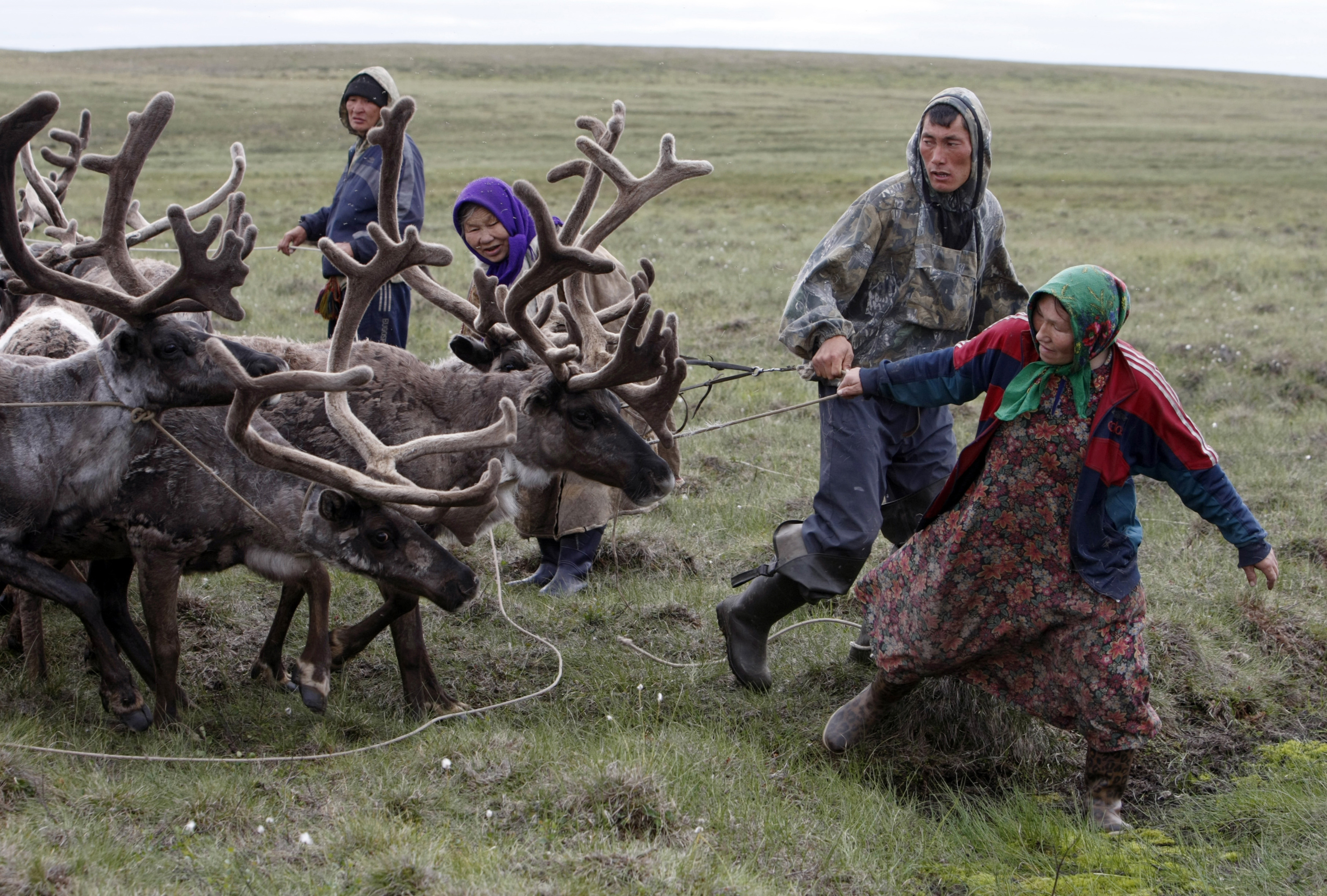Yamal authorities move to reorganize reindeer husbandry
The plan would limit reindeer migration in the region.

The management of reindeer herding must be modernized in order to ease pressure on the tundra lands, regional authorities in the Yamal-Nenets Autonomous Okrug say.
Among the proposed regulatory measures is the introduction of limited animal migration and establishment of so-called “reindeer parks.”
The measures must be introduced in order to stabilize the tundra, First Deputy Governor of the Yamal-Nenets region Aleksey Sitnikov said in a recent government meeting.
The Yamal-Nenets Autonomous Okrug has more than 760,000 reindeer, most of them living in the vast Yamal Peninsula.
A plan put forth by the regional government proposes to merge the resources of several reindeer herding communities into “reindeer parks.” The managers of the park will get stronger ownership rights over the land, but in return be subjected to strict regulations of animal migration routes and land management, the regional government informs.
“This organizational form will promote a rational use of the pasture lands by means of optimization of migration routes,” Sitnikov makes clear. He also argues that the new system will help increase production of meat.
The plan is now under review by regional and local authorities in the Russian Arctic region.
“Confined management of animals allows us to actively develop the reindeer industry in the region and provide for enhanced economic effects,” the regional official underlines, and adds that the herders will be offered grants for the construction of fences, acquisition of food dispensers, as well as veterinary and administrative procedures.
In a comment, regional Governor Dmitry Kobylkin admits that “the process is complicated.”
“But we can not stay on the same spot — lack of action will not lead to any good,” he argues.
“The measures which are being introduced together with the reindeer herders show that the chosen path is effective.”
Of the region’s 760,000-plus reindeer, 7 percent are owned by state and local authorities and about 34 percent by private collectives and companies. The remaining 60 percent are owned by family-based herder communities, the regional government said.
Over the last two decades, the number of animals on the Yamal tundra has increased significantly. At the same time, the oil and gas industry has expanded activities with new installations and plants. Gazprom and Novatek now operate several major gas projects in the Yamal Peninsula, among them the Bovanenkovo field and the Yamal LNG. The projects all include major developments of infrastructure like roads, airports, railway and pipelines.
More is under planning, and much of it will be in conflict with the reindeer herders.